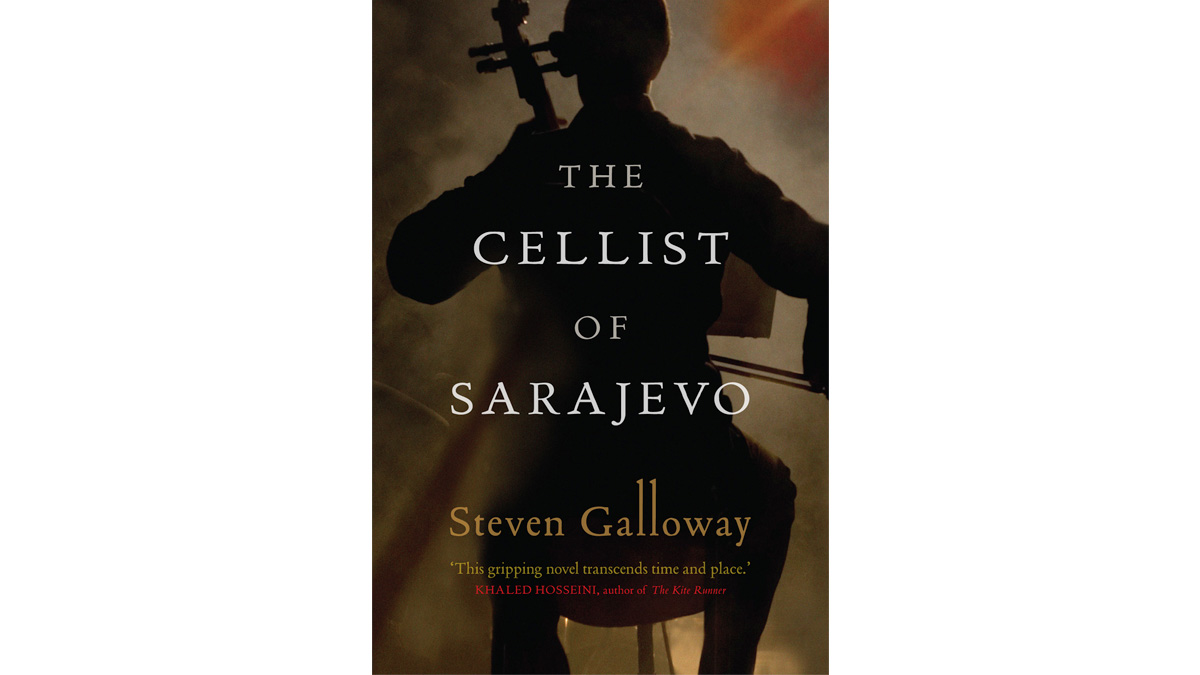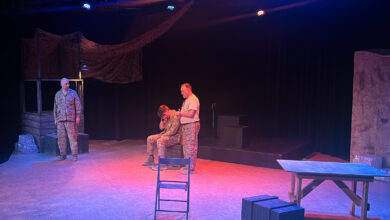Book Review: ‘The Cellist of Sarajevo’
 Supplied
SuppliedOn a desolate highway, I turned on this audiobook in hopes of quelling the boredom of the Saskatchewan landscape and was treated to a pleasant surprise.
The Cellist of Sarajevo is written by Steven Galloway and set in the mid 1990s during the siege of Sarajevo. It is loosely based on the actions of cellist Vedran Smailović, who played his cello in bombed out buildings and at funerals despite threats from the Serb snipers. It’s set after a market is shelled, which killed 22 civilians. The concert cellist, after witnessing the carnage, begins to play Albinoni’s Adagio for 22 days at the same place and time to honour each of the victims. This serves as the connector between three main characters: Arrow, a Bosnian sniper; Kellan, a middle-aged man trying to survive the weekly trip get water for his family; and Dragan, an older man going to work through sniper infested streets. The novel is split between these fictional characters who tell an accurate portrayal of the siege. Their three stories span the 22 days and switch between the three at different intervals. The book seeks to tell a story set in highly controversial war (Bosnian War) during a highly controversial event (Siege of Sarajevo), and while it does have obvious heroes and villains (Bosnian and Serbs), it successfully blurs the lines between the two.
What Worked:
The characters are, simply put, great. Arrow, Kenan, and Dragan are all great characters that, while fictional, give different perspectives of the siege that feel authentic. Even though it’s told through a third person perspective, each of Arrow’s stories are, by far, the most engaging out of the three. Her story as a sniper in this conflict offered more excitement as she was constantly in a battle whether with the Serb forces or her inner self. There is a sniper standoff between Arrow and a Serbian soldier that had me gripping the steering wheel so tight, that when the jolt of the shot came I almost crashed my car. Arrow’s story is much more than just suspenseful. There are moments of self-reflection about her role in the war, hope, and her own mortality. Days after finishing the book, I found myself constantly rethinking her parts and coming away with something new each time, such as her name, which she chose as a way to distant her soldier self from the person she was before the war. This still has me thinking not only about what these moments meant to the characters but also what they mean to me.
What didn’t work
While the characters are great; however, Kenan and Dragan’s stories can feel like they drag on. I found myself constantly wanting to get back to Arrow. Their perspectives of the war also, while different at times, tend to blur to together and aren’t as intriguing as Arrow’s story. The problem isn’t entirely with the characters; however, it is with the book’s division and moments it chooses to switch to another character’s story. The switch between characters comes at intense moments that feel like cheap walking dead-esque cliff-hangers. This begins to remove the tension created as the author cuts away from intense moments to another character at a calmer moment and grinds the pace to a halt.
Verdict
Although The Cellist of Sarajevo has its flaws, it is a wonderful piece of fiction and worth reading. While two out of the three protagonists’ stories can drag, the sheer greatness of Arrow’s story is worth the read alone. I listened to the audiobook which didn’t add much to the experience, so either reading to it or listening to it on audible makes no difference.
Rating: B+




